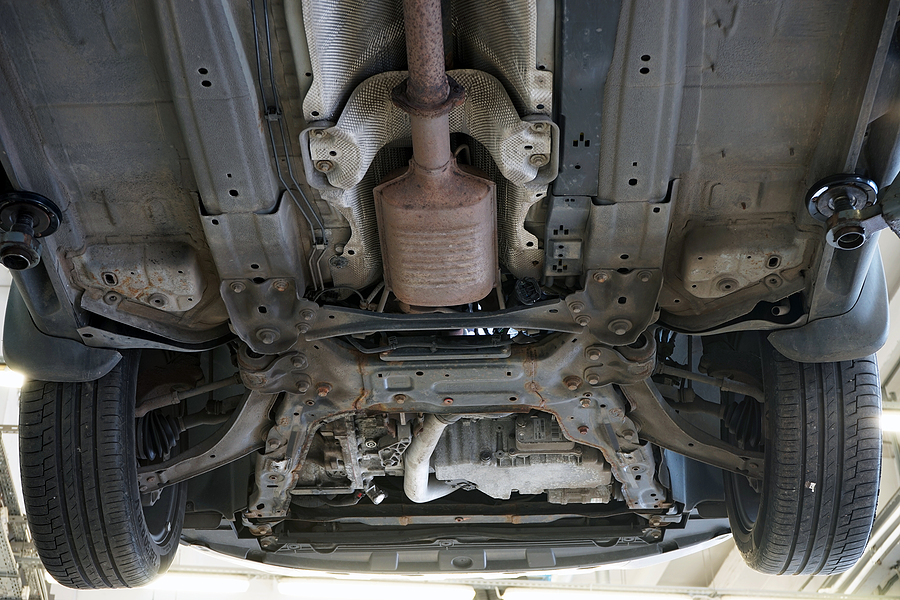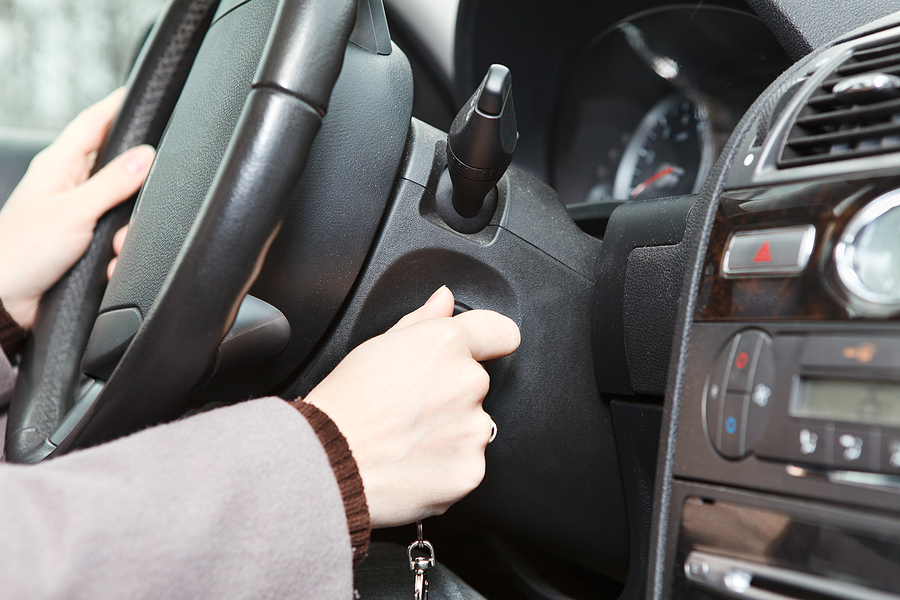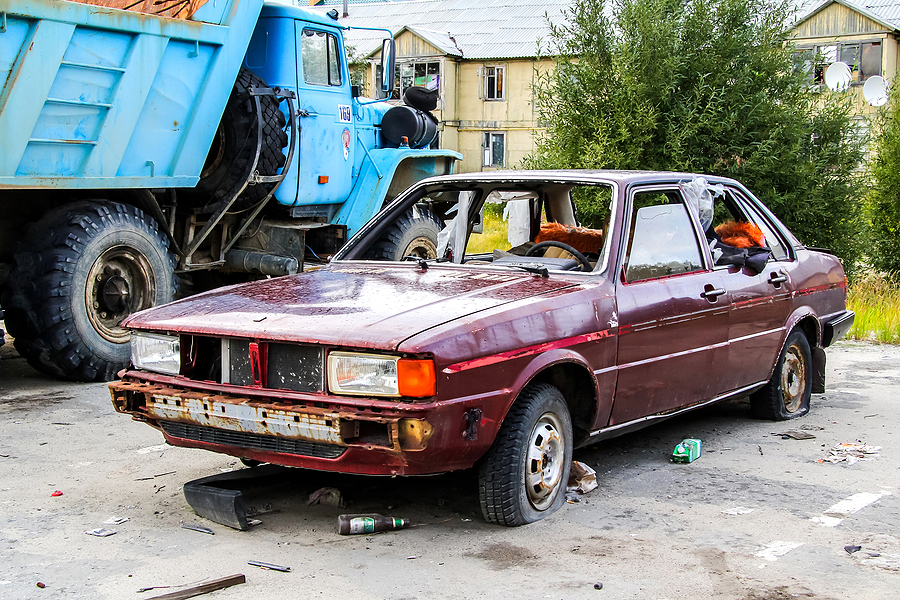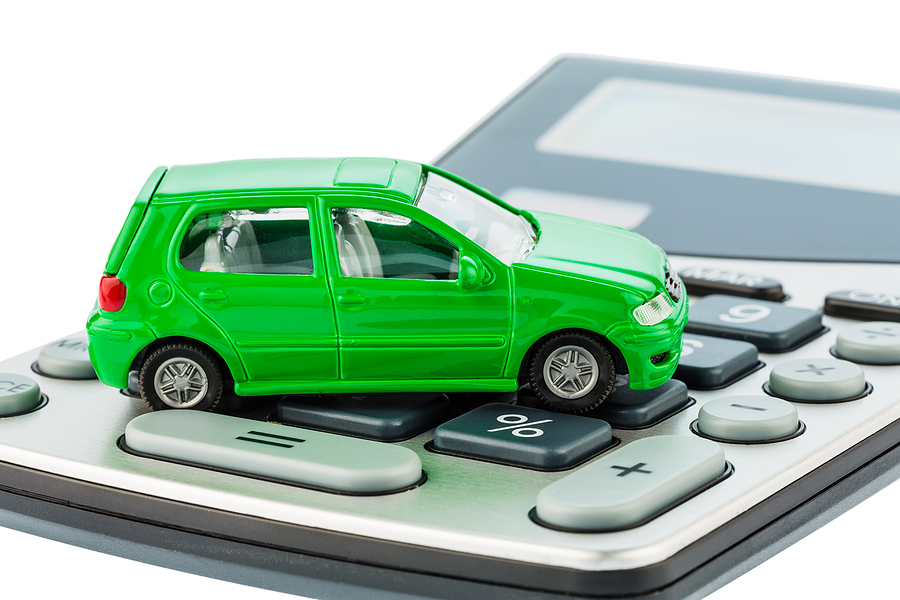A sputtering engine, a check engine light, and a foul smell—these are all potential signs of trouble with your vehicle. While several issues could be the cause, one of the most common (and costly) is a failing catalytic converter. This essential component not only keeps your car running smoothly but also plays a vital role in protecting the environment.
Understanding what a catalytic converter does, recognizing the symptoms of failure, and knowing the potential replacement costs can save you from unexpected expenses and keep your vehicle compliant with emissions laws. This guide will walk you through common catalytic converter problems, the factors that influence replacement costs, and what to do if the repair bill is more than your car’s actual cash value.

What is a Catalytic Converter?
The catalytic converter is a part of your car’s exhaust system located between the engine and the muffler. Its primary job is to convert harmful pollutants produced by your engine—like hydrocarbons, carbon monoxide, and nitrogen oxides—into less harmful gases, such as carbon dioxide and water vapor. It uses a catalyst, typically made of precious metals like platinum, palladium, and rhodium, to trigger this chemical reaction.
Under the federal Clean Air Act, all vehicles are required to have a functioning catalytic converter to reduce air pollution. Driving without one is not only illegal but also significantly increases your car’s environmental impact.
Common Signs of a Bad Catalytic Converter
Catalytic converter problems can manifest in several ways. Being aware of these signs can help you address the issue before it leads to more severe engine damage.
- Reduced Engine Performance: A clogged converter can restrict exhaust flow, making your engine feel sluggish and less responsive. You might notice poor acceleration or a general lack of power.
- “Rotten Egg” Smell: A distinct sulfurous smell, similar to rotten eggs, coming from your exhaust is a classic sign that your converter isn’t properly processing the gases from your engine.
- Check Engine Light: A failing catalytic converter will often trigger your vehicle’s check engine light. A diagnostic scan can confirm if the converter is the source of the problem.
- Failed Emissions Test: If your car fails an emissions test, a malfunctioning catalytic converter is a likely culprit.
- Rattling Noises: If you hear rattling sounds from under your car, it could mean the honeycomb mesh inside the converter has broken apart.
How Much Does a Catalytic Converter Cost?
The cost of a catalytic converter replacement can vary significantly depending on several factors, including your vehicle’s make and model, your location, and whether you choose an original equipment manufacturer (OEM) or aftermarket part.
- Vehicle Make and Model: Different cars require different types of converters. High-performance or luxury vehicles often have more complex and expensive systems.
- Labor Costs: Labor rates vary by region and repair shop. The complexity of the installation can also affect the time it takes to replace the part.
- OEM vs. Aftermarket Parts: OEM parts are made by the vehicle manufacturer and are generally more expensive but guarantee a perfect fit. Aftermarket parts are cheaper but may vary in quality and longevity.
Here are some estimated replacement costs for popular car models:
- Honda Accord: $800 – $1,500
- Toyota Camry: $900 – $1,600
- Ford Explorer: $1,000 – $1,800
- F-150: $1,100 – $1,900
- Jeep Wrangler: $1,200 – $2,000
Disclaimer: These costs are estimates and may vary based on your location, vehicle condition, and service provider.
When Repair Costs Exceed Your Car’s Value
Sometimes, the catalytic converter cost is so high that it approaches or exceeds your vehicle’s actual cash value (ACV). When a car’s repair costs are higher than its fair market value, it may be considered a totaled car. In this situation, investing in a major repair may not be financially wise. Instead of sinking money into an aging vehicle, you might consider selling it.
The junk car value typically ranges from $100 to $500, but this can increase based on the car’s weight, current scrap metal prices, and the presence of valuable components. Getting quotes from multiple junk car buyers can help you secure a fair price.
The Benefits of Scrapping Your Car
If you decide that replacing your catalytic converter isn’t worth the cost, scrapping your junk car offers several advantages:
- Get Cash for a Non-Functional Vehicle: Scrapping allows you to get an instant cash payout for a car that might otherwise sit unused.
- Avoid Expensive Repairs: You can put the money you would have spent on repairs toward a more reliable vehicle.
- Environmentally Friendly: Scrapping ensures that hazardous materials are disposed of properly and that valuable parts and metals are recycled.
- Free Up Space: Getting rid of an old car clears valuable space on your property.
- A Quick and Easy Process: Reputable junk car buyers handle most of the work, including towing, making the process simple and hassle-free.
FAQs About Scrapping a Car
How do I know if my car qualifies for scrapping?
Most vehicles, regardless of their condition, qualify for scrapping. Whether your car is damaged, non-operational, or simply old, junk car buyers typically accept a wide range of makes and models.
What paperwork is required to scrap my car?
You will generally need to provide proof of ownership, such as the vehicle title, to complete the transaction. Some buyers may also require a valid ID for verification.
Will I need to pay for towing?
No, reputable junk car buyers like GC’s Junk Cars in Indianapolis often include free towing as part of their service, ensuring a convenient and cost-free experience for you.
Can I still scrap my car if it doesn’t run?
Absolutely! Non-operational vehicles are still valuable for their parts and scrap metal, and most buyers are willing to take them off your hands.
Disclaimer: Please note that this blog post is for informational purposes only and should not be considered professional advice. Consult with a qualified mechanic or legal expert for specific guidance related to your vehicle or local regulations. We are not liable for any actions taken based on the information in this blog.
In Summary
A failing catalytic converter is a serious issue that impacts your car’s performance and the environment. While the replacement cost can be steep, it’s a necessary repair for keeping your vehicle road-legal and running efficiently. However, if the repair bill is more than what your car is worth, it may be time to consider other options.
Weigh the catalytic converter cost against your vehicle’s overall condition and fair market value. If it’s time to move on, selling your totaled car for cash can be a smart and responsible choice. Our team of junk car buyers offers competitive prices and a seamless process, giving you an instant cash payout for your vehicle.
Related Post: The Pros and Cons of Replacing a Catalytic Converter on an Older Vehicle









